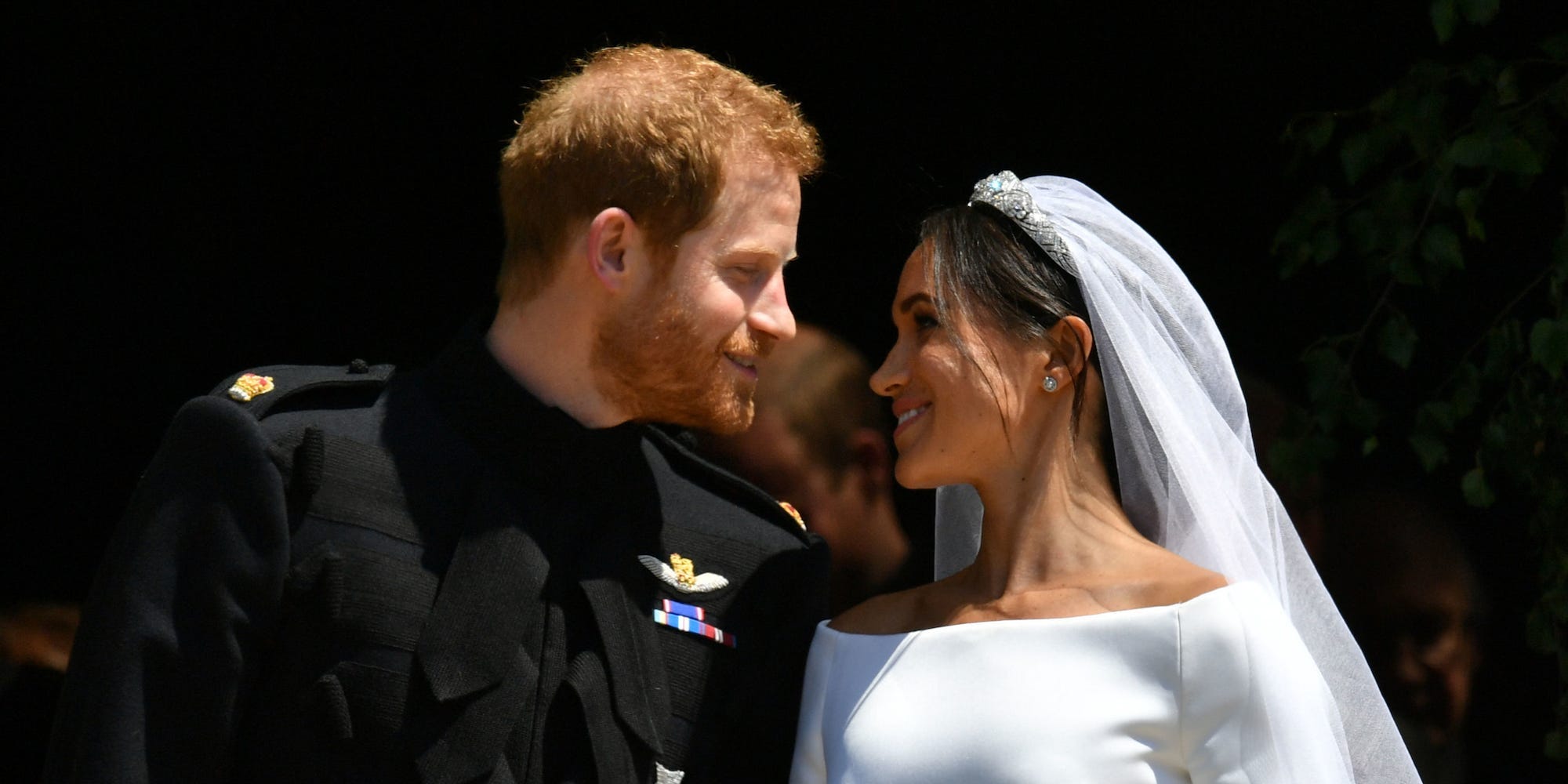
BEN BIRCHALL/AFP via Getty Images
- Prince Harry and Meghan Markle spoke with Oprah about life as members of Britain's royal family.
- Soon after the interview aired Sunday, the hashtag #AbolishTheMonarchy began trending on Twitter.
- This isn't the first time calls to abolish the monarchy have been made.
- Visit Insider's homepage for more stories.
Following Prince Harry and Meghan Markle's CBS interview with Oprah Winfrey on Sunday night, #AbolishTheMonarchy trended on Twitter.
The interview contained numerous revelations that left many viewers stunned. One of the biggest moments was when Markle said during the interview that before her son Archie was born, members of the royal family had "concerns and conversations" about "how dark his skin would be." Winfrey later said on "CBS This Morning" that the family members that had this conversation were neither Prince Phillip nor Queen Elizabeth.
Markle also told Winfrey that she felt she was not being protected by the monarchy, especially when Markle vocalized concerns for her mental health. She explained to Winfrey that she went to a senior official in the palace and was denied help.
"Nothing was ever done," Markle told Winfrey during the interview. "So we had to find a solution." She said this led them to step down as senior members of the royal family in January 2020.
As the interview took place, social media users took to Twitter to decry Markle and Harry's experiences and say that the problematic way the couple was treated was the reason why the monarchy should no longer be an institution within the United Kingdom.
-Lisa Tilley (@Tilley101) March 8, 2021
-Mary-Ellen (@HullLecturer) March 8, 2021
The idea may seem like an extreme reaction to a single media moment, but it's been a popular thought for years.
Calls to abolish the monarchy aren't new
This call to abolish the monarchy isn't new. It's happened multiple times on and off social media. Just two years ago, in 2019, the same hashtag trended as Queen Elizabeth agreed to shut down Parliament during Brexit deals.
-Republic (@RepublicStaff) March 8, 2021
Republic, a grassroots movement in the United Kingdom, has also been making these calls for years. The group "is a membership-based pressure group calling for the monarchy to be replaced with an elected head of state and for the adoption of a new republican constitution. It was founded in 1983 and has been active ever since. In 2016, the Independent reported that the group claimed: "the British monarchy is not the 'harmless tourist attraction some people think' - rather, it has a history of abusing public money and meddling in politics."
According to a 2020 YouGov poll, 22% of Britons agreed with the idea of abolishing the monarchy.
-Republic (@RepublicStaff) March 8, 2021
Insider's Mikhaila Friel spoke with royal expert Marlene Koenig in 2020, however, who told Insider, "the republican movement is small" and "the political system is stable."
It would not be an easy process to abolish the monarchy
The royal family has existed in the UK for over 1,200 years, so getting rid of the monarchy would not exactly be an easy process.
"Historically, bloody revolutions are how monarchs tend to meet their demise," VICE reporter Aaron Drapkin wrote, "But military coups and civil wars aren't really our thing anymore."
Because the monarchy has no political power, according to the official royal website, any major legislation to make changes, including abolishing the monarchy, would be put forth by Parliament. The abolition of the monarchy would need to come from a referendum or a vote to make said change.
"It would take legislation, an act of Parliament, signed by the Sovereign to end the monarchy," Koenig previously told Insider. "The monarchy is not going anywhere anytime soon."
Even if the movement grew stronger, it would most likely have to wait until after the death of Queen Elizabeth, Graham Smith, the chief executive of the Republic, told the Independent in 2016. Smith told the Independent, "it needs to be a straight-forward constitutional reform referendum. We may win or we may lose but the succession would change public opinion, it will change the nature of the debate."